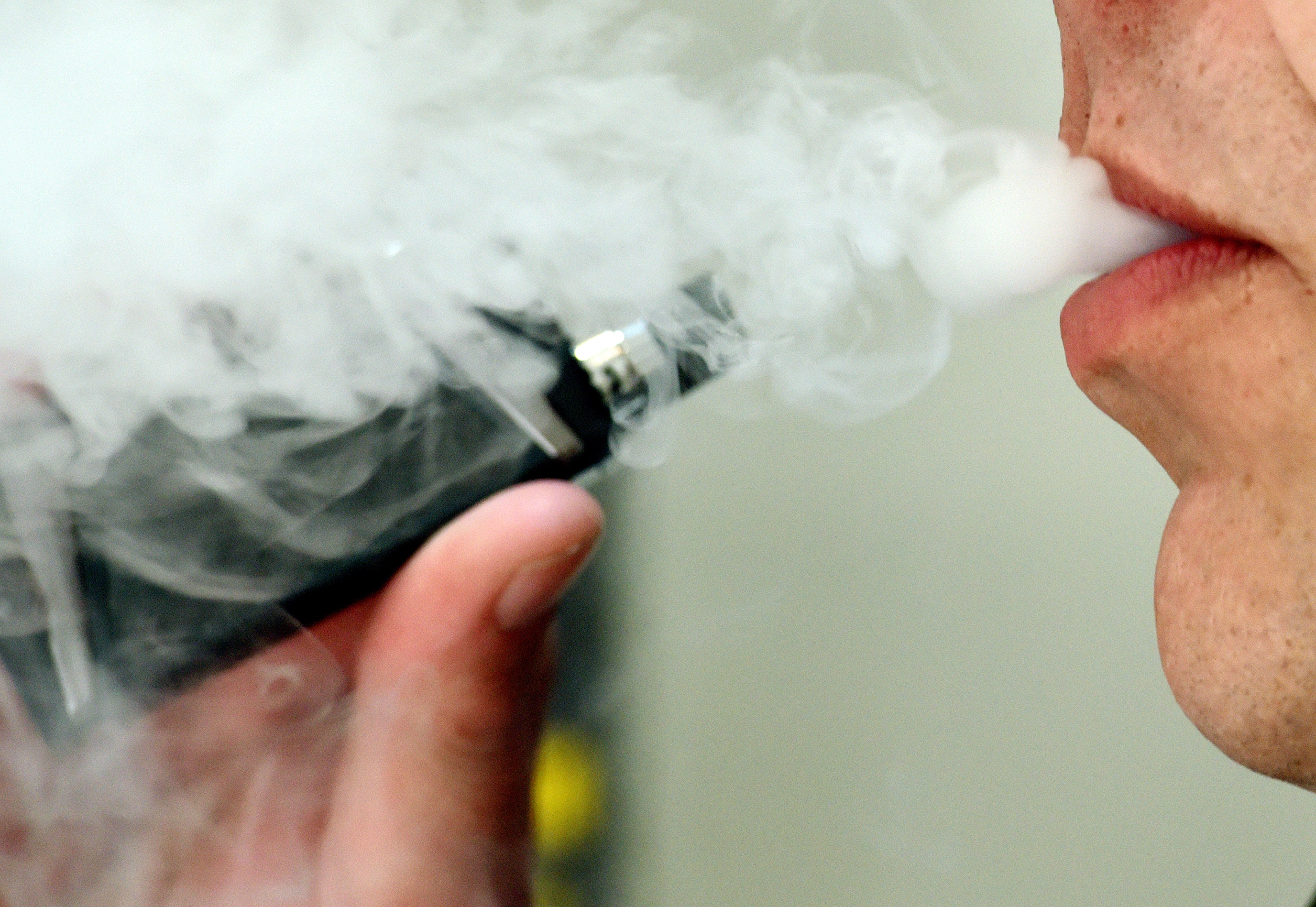Concern children are being ‘targeted’ by vape companies as figures show huge increase
Vape companies are ‘simply interested in ‘hooking’ children and young people to make a profit off them’, Dr Mike McKean.

Your support helps us to tell the story
From reproductive rights to climate change to Big Tech, The Independent is on the ground when the story is developing. Whether it's investigating the financials of Elon Musk's pro-Trump PAC or producing our latest documentary, 'The A Word', which shines a light on the American women fighting for reproductive rights, we know how important it is to parse out the facts from the messaging.
At such a critical moment in US history, we need reporters on the ground. Your donation allows us to keep sending journalists to speak to both sides of the story.
The Independent is trusted by Americans across the entire political spectrum. And unlike many other quality news outlets, we choose not to lock Americans out of our reporting and analysis with paywalls. We believe quality journalism should be available to everyone, paid for by those who can afford it.
Your support makes all the difference.Children are being “targeted” by vape companies, leading doctors have warned, as new data suggests almost 10 per cent smoke e-cigarettes.
New figures from NHS Digital suggest 9 per cent of 11 to 15-year-olds in England smoke e-cigarettes. This is a rise from 6 per cent in 2018 – the last time the figures were published.
Within this, the increase in e-cigarette use among 15-year-old girls more than doubled over 2018 to 2021 from 10 per cent to 21 per cent.
The figures however showed a decrease in the proportion of children and young people who smoke, from 5 per cent to 3 per cent over the same period.
Figures suggest lower levels of reported life satisfaction among the young people who had recently reported they had smoked, drunk alcohol or taken drugs.
A total of 46 per cent of 15-year-old girls reported “low levels of happiness” and 51 per cent reported high anxiety levels.
Dr Mike McKean, paediatrician and vice president of policy for the Royal College of Paediatrics and Child Health said: “I am deeply disturbed by the rise of children and young people picking up e-cigarettes. E-cigarettes remain a relatively new product and their long-term effects are still unknown.
“It is clear that children and young people are being targeted by e-cigarette companies with bright packaging, exotic flavours and enticing names. Disposable e-cigarettes are growing in popularity amongst children and young people and can be accessed easily in newsagents and sweet shops. Nowadays there is a vape shop on almost every high street.
“These companies are simply interested in ‘hooking’ children and young people to make a profit off them – there is absolutely no thought or care about their health and wellbeing.”
He called for the UK government to introduce plain packaging of e-cigarettes and nicotine and non-nicotine products warning without action the country could see a generation of children addicted to nicotine.
The paediatrician added tighter restrictions on the advertising of vaping products was also needed to ensure they are only advertised for their purposes as a smoking reduction aid rather than a “fun and colourful lifestyle product”.
However, Prof Ann McNeill, professor of tobacco addictions at King’s College London and author of a forthcoming government evidence review of e-cigarettes, said “The rise in youth vaping is concerning and we need to understand what lies behind this such as packaging, accessibility, taste or addictiveness.
“Our response must be proportionate, however, given smoking is a much bigger risk. The government should ensure existing laws are enforced and identify where regulations could be extended.”
Data published by NHS Digital also showed levels of alcohol use in school children have not declined, with 6 per cent reporting they usually drink alcohol once a week.
The proportion of students reporting they have never had a drink also dropped from 44 per cent in 2018 to 40 per cent last year.
Meanwhile, some 18 per cent of pupils reported having ever taken drugs, down from 24 per cent in 2018.
The survey also asked children about their wellbeing, life satisfaction, happiness, and anxiety. Girls reported lower measures of wellbeing compared with boys.
Almost half – 46 per cent – of 15-year-old girls reported a low level of happiness, and 51 per cent reported a high level of anxiety on the previous day.
Some 57 per cent of young people who had recently smoked, drunk alcohol and taken drugs reported low levels of life satisfaction compared with 35 per cent who had recently done just one of these things, and 18 per cent who had not recently smoked, drunk or taken drugs, NHS Digital said.
Deborah Arnott Chief Executive of ASH said: “The NHS Digital survey shows the same concerning rise in underage vaping as ASH data published in July. Schools, parents and local authorities are looking for help, and ASH has just published guidance on how to tackle youth vaping, available on our website.
“But while further action on vaping is needed, it is still only a small minority of children vaping and it is encouraging to see that the NHS Digital survey finds youth smoking has continued to decline, as smoking is far more harmful than vaping.”
A Department of Health and Social Care spokesperson said: “We have some of the strongest regulations in place to prevent children from vaping. We are also considering further measures to support our ambition to be smoke-free by 2030 and address the challenges raised in the independent smoking review by Javed Khan.
“We are clear that vaping should only be used to help people quit smoking – vapes should not be used by people under 18 or non-smokers.”





Join our commenting forum
Join thought-provoking conversations, follow other Independent readers and see their replies
Comments